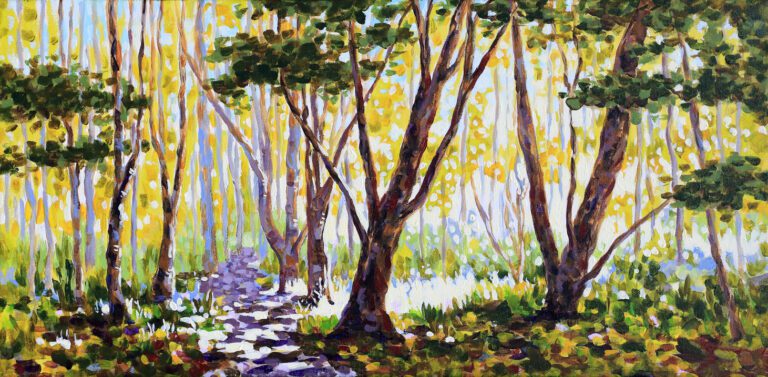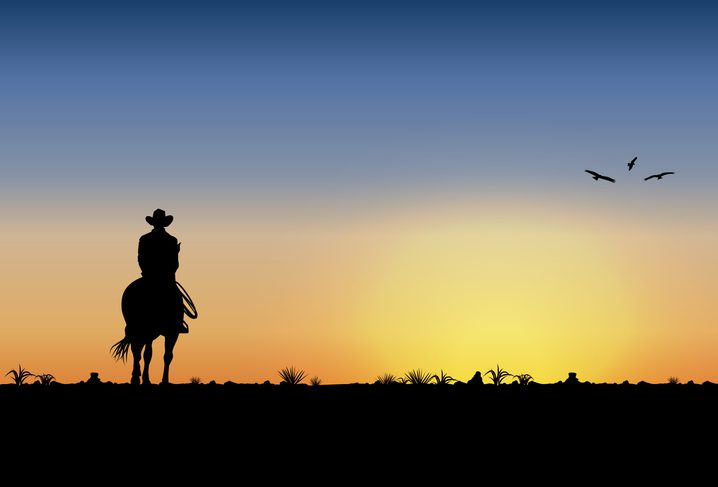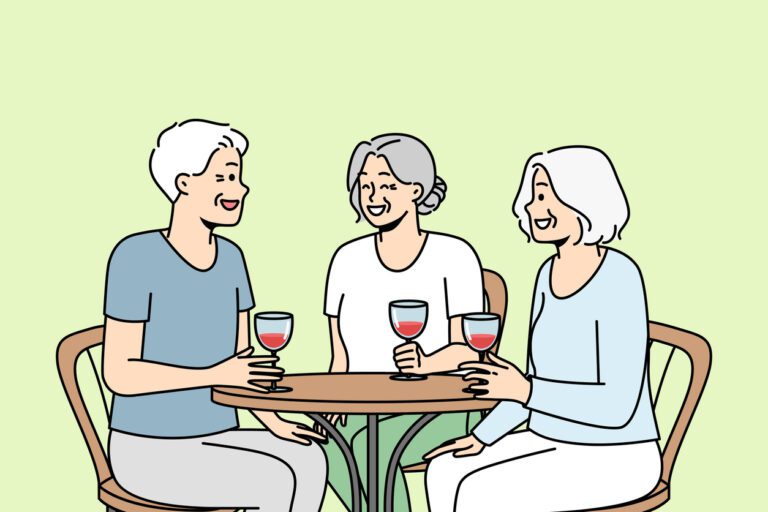If you lift your eyes and stare at the horizon, it is as if the whole world is stationary, and the steady plod of your own feet are nothing more than the measured beating of a solid, dense drum. Around me, the prairie is laid out, vast and empty, sliding away unhindered in every direction until it touches the edge of the sky. On its surface, the grasses undulate in ripples, spreading and churning like a lethargic sea.
I walk, step following step, skirts dragging in the vegetation. To my left, the wagons rattle and creak, rocking side to side, their canvas tops pulsating slowly in the warm air like they breathe. They form a long line, one behind the other, nose to tail, first to last, trailing each other at a steady speed, safety in numbers, comfort in company. To my right, the cattle are being slowly driven in a herd, the men on their horses doing nothing more than riding alongside their charges at a walk, all somewhat foot weary. Only the children run, chasing friends amongst the wagons, racing knee-deep through the seed heads, laughing carelessly.
When the sun sinks low enough for us to shade our eyes from its orange glare, the front wagon starts to circle and the train, the humpbacked centipede, bends around to meet its end. We stop in a large ring, the day’s travelling done and evening’s work about to start. Standing still, inhaling, hands on hips, I survey the scene and am satisfied.
***
Later, when darkness covers us, I sit with the children in the wagon to settle them. The little ones, Ella and Patty, fall asleep almost instantly after a long day’s travel, while the eldest, Virginia, is content to lie quietly and stare at the stars through the open flap. Eight-year old Isaac, however, is all chatter.
“Shhhh,” I say, caressing his head. “Shhhh.”
Just outside, Earle is talking with some other men.
“Twelve miles today, I reckon,” says one.
They agree it is good progress and there is silence for a bit while they sit and smoke.
“No Indians,” another says eventually.
“No Indians,” agrees Earle, his voice familiar and soft.
“Are we going to see Indians?” Isaac asks me, more excitement than fear.
“No,” I tell him. “They’re gone now. They have their own place to live.”
“Awww,” says my son, disappointed.
“Shush,” I tell him again. “Go to sleep.”
***
We rise with the lifting of the dark, another long day promised. Earle is attending to the horses, backing them into the shafts of our wagon, when I approach with his bowl of grits.
“All right?” he says to me, smiling as he takes the bowl.
“I’m good,” I reply.
This is his idea, this great scheme to go west into new territory. “They give you 160 acres,” he had told me, his expression brighter than I’d seen in a long time. “All we have to do is turn up, live on the land and farm it for five years, and the government give it to us. Our land! Our farm. We can do this Mary. We can.”
I had no urge to go anywhere. We might have been without property, but we were happy in Illinois and gainfully employed. My parents were there. We had friends. What more could we need or want?
Land, apparently.
Land, ours for the taking.
The decision was made and so we went. I wept with my farewells, as I hugged my mother for the last time and pressed my friend’s cheek to mine. My face was wet as I watched the familiar streets with their established homes and tended gardens pass and fall away. That day, that painful day, Earle had taken my hand and kissed it. “Thank you,” he had said, as we trundled out of Illinois and into the unknown. Then he had taken up the reins again and looked forwards, the past already forgotten.
***
This day was like the others, until it wasn’t.
We rolled slowly onwards: wagons, horses, cattle, people. I walked for awhile with young Jessie Cotter, 14 years old, newly married and, with no real past, seeing nothing ahead but a bright future. I walked with Virginia, hand in hand, and sang songs. I walked alone, listening to the rhythm of jingling harnesses, clattering wheels, and falling hooves. I walked.
Then, suddenly, there was commotion ahead. One of the wagons had abruptly stopped and its driver leapt from his perch. Behind it, every other wagon stumbled to a halt.
“Whoaaaa, whoaaa,” called Earle, pulling on the reins.
We, remaining in our place, watched the rush of men to the scene, the application of shoulders to the wagon. There was shouting, frantic voices. A woman cried, “Oh, dear God!”
And then they were calling our names. Our names.
Earle climbed down from the box to stand beside me. I looked at him for reassurance but there was none. His face was still blank as Ned Hook started running towards us, a small crowd following in his wake. In his arms was the limp figure of our son. Our son.
***
There was no more travelling that day. Our wagon, harbouring our broken son, did not move an inch. I crooned as I wiped the damp forehead of my child, his expression tight with pain and his eyelashes impossibly dark against his cheeks. His breath was steady but shallow. Occasionally, he whimpered.Outside, there was plenty of activity, and when I left little Isaac for a moment in the care of Emma Oatman, I discovered that the other wagons had formed a circle around us, tight and embracing. The usual evening activities were already in underway although the sun indicated it was mid-afternoon.
Earle was in serious conversation with Royce Thomson. I picked up my skirts and walked over to join them.
“I’m sorry,” Royce was saying, shaking his head. “I’m so sorry.”
“Why?” I asked.
I felt angry although why Royce should bear the brunt of that anger, I cannot answer.
“There is nothing we can do for Isaac,” he said gently to me. “He is damaged inside. There are broken bones and terrible internal injuries and I …” Royce hesitated, twisting his hat in his hands. “I can’t do anything.”
“We can wait,” I said. “We can wait until he is well again.” Royce opened his mouth to speak and thought better of it. Earle stared expressionless at the ground. “We wait,” I said, and walked away.
***
They left us there the next morning. The decision was made for us to stay behind until we were able to travel.
Given that it was only expected to be a day or two, it was thought that we might be able to catch up. For our self-protection, Earle was given a rifle which he stashed amongst our belongings, and a pistol that he tucked in his belt. He shook the hands of a number of well-meaning men and assured them that we would be fine.
He lied.
The wagon train slowly rolled away towards the impossibly flat horizon and endless lands. I watched until all that could be seen was a dirty smudge against the blue sky. Turning my head, I could see my husband walking away to the north, a water can in his hand. In the opposite direction, the girls were sitting on a solitary rock where Virginia had taken Ella and Patty; close enough to be there, distant enough to be spared.
Then there was nothing left but the whistle of the wind, the flapping of the canvas, and the sighs of my dying child.
Isaac sank until he no longer answered my questions. His non-responsiveness was easier to bear than his cries.
Late that afternoon, Earle returned with some water, his eyes red. He lifted the canvas flap to check on us and had nothing to say, nothing to say at all. Shortly afterwards, I heard him speaking outside, which is when I realised the girls had returned and Earle was organising them to fix some food. In was dusk by the time the three girls entered the wagon with a simple meal to share although it was evident none of us had an appetite.
We sat quietly around Isaac by the light of the lantern. Moths fluttered and burnt themselves on the hot glass. Outside, a soft thud, thud could be heard; the sound of a spade being thrust repeatedly into dirt, not close, not loud. A hole was being dug. “What is Paw doing?” asked small, sweet Patty, her face in the shadows bewildered.
***
Isaac died overnight, and in the morning, we buried him in the freshly dug grave that was next to the rock.
***
The days that followed were long. Earle was anxious to catch up with the wagon train and so we travelled further and later than usual, following the tracks in the dirt across the prairie and into oblivion.
“An extra mile a day means we should catch them within 10 days or so,” he told me, functioning adequately but still devoid of any emotion.
“I don’t want to go,” I told him, all emotion.
“Mary,” he said, leaning on the wagon wheel, “we need to go on. There is no going back. We’ve paid a huge price and it has to count for something.”
“It will count for nothing,” I spat.
***
On the fifth day afterwards, after that day, a brown puff, like mist, appeared indistinctly before us. Slowly, it formed into a definite cloud.
“Hey,” exclaimed Earle, calling to me from the box seat, “there they are! See, we’ve made good time.”
I walked on, my bonnet blocking him from view and therefore sparing me the effort of acknowledging his voice.
The dust cloud grew surprisingly fast, and it was only when the figures came into view that we realised we were not trailing the wagons, but we were instead being approached by a large group. Earle halted the horses and stood up to see better. I shielded my eyes and squinted against the harsh light.
Men on horses.
“Girls!” I shouted, anxiously beckoning and pointing at the back of the wagon. They came running and I helped them into the tray.
“Get in,” Earle said, suddenly appearing at my side and retrieving the rifle from under the stores.
“What is it?” I asked him.
“Indians,” he told me quietly. “Lots of them.”
“Can we turn off so they miss us?” I asked.
“Too late. We’ve been seen.”
“So, what do we do?”
“Pray,” Earle said, handing me the pistol from his belt and heading back to the box seat. We both climbed on board, Earle flicked the reins and the horses recommenced their steady walk. In the back, I made the girls lie down and covered them with bedding, then positioned myself at Earle’s back, the pistol hidden in the folds of my dress.
Slowly, unwaveringly, we continued on our path. The Cheyenne advanced at a similar pace; not hurrying or deviating. There were maybe 40 or 50 of them; high-cheeked men with animal head-dresses and bare chests sitting astride tan and white horses, women with plaited hair and buck-hide clothing, and wide-eyed children staring at us with undisguised curiosity. No one reacted. We began to pass each other as casually as strangers in a suburban street.
There was one woman riding a small horse which dragged a wooden raft along the ground. On the raft, amongst bundles of possessions, sat three small children. I met the woman’s sober eyes, and for a long moment, we held each other’s gaze.
Sometimes, if you lift your eyes to the horizon to see beyond yourself, you can find yourself coming the other way.
About the Author
Lianne Darby has been a land surveyor, wife and number-one farm assistant to a dairy farmer, and now works as a planner with a city council. Born and bred as a North Islander, she saw the light and moved south to Dunedin 22 years ago. Her days are spent writing reports on subdivisions and residential development, while her weekends are spent writing stories. It’s all about creation in its different forms.







